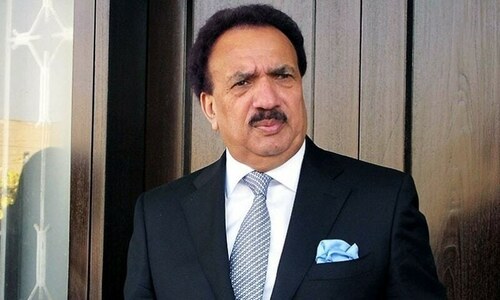Renowned academic and journalist Dr Mehdi Hasan passed away after protracted illness at his house in Lahore on Wednesday.
He was 85 and is survived by wife, Rakhshanda Hasan, and two sons.
His funeral prayers will be offered after Isha at Sukh Chain Housing Society, Multan Road, according to Punjab University, where he had served as a professor of mass communication.
He was awarded Sitara-i-Imtiaz in 2012 for his services in journalism.
As a journalist, he served at the Pakistan Press International as a sub-editor and a reporter between 1961-67. He remained an elected office-bearer of the Pakistan Federal Union of Journalists (PFUJ) during this period.
National and international mass media outlets, including Voice of America, BBC News and Deutsche Welle, regularly sought his opinion on political developments in Pakistan. He contributed articles to all major newspapers of Pakistan.
Dr Hasan was among the few media historians of Pakistan and made regular appearances as a commentator and panelist on television and radio programmes.
His teaching career spanned 50 years, during which he also served as the dean of journalism and mass communication at Beaconhouse National University.
The late academic authored several books on history, journalism, mass communication and politics. His book 'The Political History of Pakistan' is a widely used source of reference by journalists and producers.
He also served as Human Rights Commission of Pakistan (HRCP) chairperson.
Dr Hasan received a PhD in mass communication from Punjab University after acquiring a masters degree in the same discipline from the varsity.
He also studied at the University of Colorado in the US on a Fullbright scholarship. During the course of his studies there, he undertook research on the "Coverage of Third World Countries in the American Mass Media".
He was also a passionate photographer, he nephew, Haider Hasan, told Dawn.com. "His love for photography took him to the frontline of the war zone in Lahore in 1965," he said.
Punjab University Vice Chancellor (VC) Prof Niaz Ahmad Akhtar expressed grief over Dr Hasan's demise.
In his condolence message, the VC said Dr Hasan was "a powerful voice of human rights in Pakistan" and prayed for courage for his family to bear this irreparable loss.
HRCP Chairperson Hina Jilani said Dr Hasan was a "public intellectual and one of Pakistan’s foremost media historians."
Dr Hasan was twice elected chairperson of HRCP and five times as an office bearer of the Pakistan Federal Union of Journalists, she said, adding that as a teacher of journalism at the University of the Punjab and subsequently at Beaconhouse National University, "he nurtured several generations of reporters and columnists, always emphasising the integrity of facts and evidence".
"Underlying his soft-spoken demeanour was a political astuteness that few can lay claim to. It was to Dr Hasan that many leading politicians—his former students—turned for advice. It was advice he gave invariably without fear or favour," said Jilani.
She described Dr Hasan as a "proudly secular man".
He long warned that Pakistan could not hope to become a true democracy so long as it pandered to religious nationalis, Jilani recalled, adding that Dr Hasan's "unwavering commitment to freedom of religion, expression and opinion gave direction to human rights defenders and progressive journalists across Pakistan, scores of whom would congregate at his home in Lahore out of a shared love of poetry and political anecdotes".
Dr Hasan will be sorely missed and we extend our deepest condolences to his family and friends, she added.
In his condolence message, Punjab Chief Minister Usman Buzdar extended sympathies to the bereaved heirs and paid tributes to the educational and journalistic contributions of Dr Hasan.
Dr Hasan "rendered invaluable services in journalism and education sectors, and journalism has been deprived of a maestro with his departure," Buzdar said.
With additional input from APP














































